Method also useful for other Brazilian species
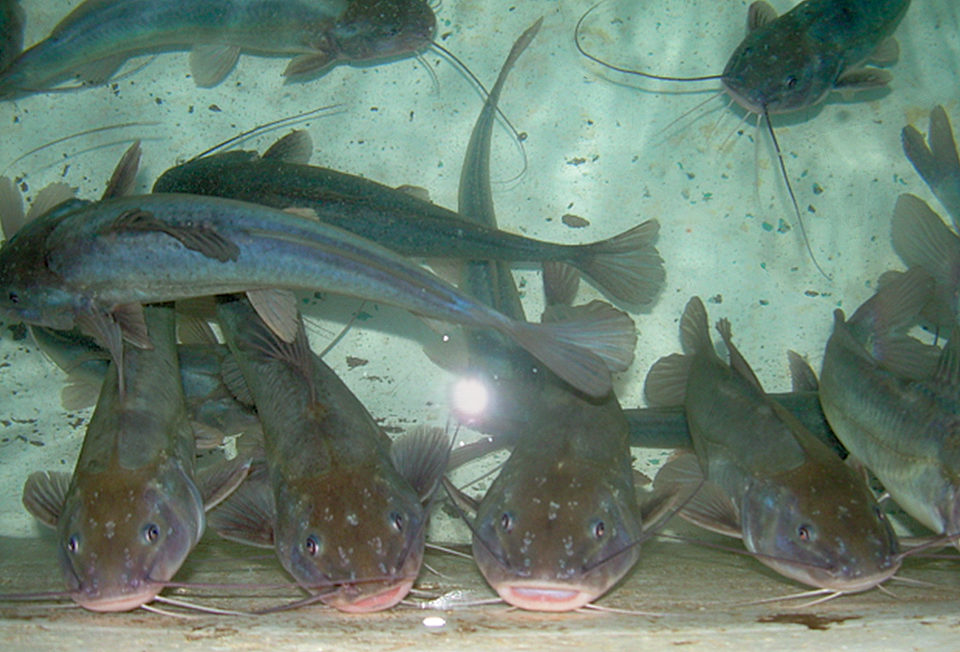
Clove oil and its major compound, eugenol – which is also found in several other plant essential oils – are effective natural sedatives or anesthetics. Sedation and anesthesia work as allies in fish farming in such practices as the extrusion of eggs, biometrics and transportation, decreasing the hypermotility of animals and minimizing the intensity of stress imposed. Sedation and anesthesia also reduce the occurrence of physical damage, thus protecting the vital physiological functions of cultured animals.
A number of considerations are important when choosing a fish anesthetic, such as efficacy, cost, availability and ease of use, as well as toxicity to fish, humans and the environment. Many studies have identified clove oil and eugenol as good alternatives in fish production because they possess many of the cited characteristics and low accumulation in tissues.
Clove oil, eugenol as fish anesthetics
There are no regulations on the use of anesthetics in fish in Brazil, where the recommendations of the U.S. Food and Drug Administration (FDA) are usually followed. However, anesthetics for fish are not easily obtained in the country.
MS-222, the only chemical drug approved by FDA for fish anesthesia, is not commercialized in Brazil, and importation fees are prohibitive. An upside of clove oil and eugenol use is the cost, which is similar to that of benzocaine and around 10 times lower than the cost of MS-222.
Several investigations have identified the advantages and disadvantages of clove oil and eugenol, and reported these products as safe and effective. Compared to drugs such as MS-222, the effect of these natural anesthetics is observed much faster in fish, even at low concentrations. However, recovery time after anesthesia is much longer with clove oil and eugenol than with other anesthetics.
Clove oil and eugenol have been studied as potential anesthetics for some fish species in Brazil (Table 1). Their efficacy in anesthetizing fish as well as in minimizing physiological stress response was demonstrated, thus supporting their use in the management of fish in the country.
Sutili, Effective doses of clove oil, Table 1
| Species | Weight (g) | Dose (mg/L) Clove Oil | Dose (mg/L) Eugenol |
|---|---|---|---|
| Arapaima gigas* | 6,000.0 | – | 30.0-60.0 |
| Astyanax altiparanae | 0.6 | 50 | – |
| Brycon cephalus | 3.5 | – | 50.0-100.0 |
| Centropomus parallelus | 28.0 | – | 37.5 |
| Colossoma macropomum | 55.0 | – | 65.0 |
| Gymnotus species | 95.0 | 40-80 | – |
| Hoplias lacerdae* | 1,300.0 | 150-250 | – |
| Leporinus macrocephalus | 2.0 | – | 37.5 |
| Leporinus macrocephalus* | 1,300.0 | 100-175 | – |
| Odontesthes bonariensis | 1.0 | 25-50 | – |
| Piaractus brachypomus | 50.0 | 40 | – |
| Piaractus mesopotamicus | 50.0-250.0 | – | 175.0-240.0 |
| Prochilodus lineatus* | 1,300.0 | 100-175 | – |
| Pseudoplatystoma corruscans | 28.0 | – | 50.0 |
| Pterophyllum scalare | 6.0 | – | 40.0 |
| Rhamdia quelen | 2.0 | – | 20.0-50.0 |
| Rhamdia voulezi | 32.5-450.0 | – | 50.0 |
| Salminus brasiliensis | 20.0 | 40-60 | – |
| Trachinotus marginatus | 50.0 | – | 50.0 |
Table 1. Effective doses of clove oil and eugenol as anesthetics for Brazilian fish species.
Eugenol is an effective anesthetic for silver catfish, Rhamdia quelen. Largely grown in southern Brazil, this species responds easily to induced spawning, is well adapted for cultivation and is the native fish species most studied in Brazil.
In research, silver catfish anesthetized with eugenol at 50 mg/L presented significantly lower plasma cortisol levels than control fish. However, sensory analysis demonstrated that eugenol modified the flavor of the fish fillets. Therefore, the grace period for which producers must wait to slaughter the animals after drug administration must be determined.
Response factors
The effects of anesthetic and sedative agents vary with fish weight and length, the number of specimens anesthetized in the same bath preparation and water quality parameters. Temperature, pH, salinity and hardness can affect the metabolic rate, acid-base balance and ionoregulation.
Water quality and fish size affect the anesthetic efficacy of eugenol in silver catfish. Sedation and anesthesia of this species can be induced with as little as 20 mg/L of eugenol, but anesthesia requires a concentration of at least 40 mg/L to compensate for the influence of fish size and water quality.
In research, blood gas tensions and pH levels were affected by eugenol anesthesia, but only in fish acclimated to a temperature of 30 degrees C. The addition of eugenol at 1.5 or 3.0 µL/L to transport water for silver catfish promoted decreases in the loss of sodium, chloride and potassium ions, and total ammonia nitrogen levels at the end of the experiment. These findings suggested the use of eugenol is advisable for the transport of silver catfish because it apparently reduces stress.
Eugenol against fish pathogens
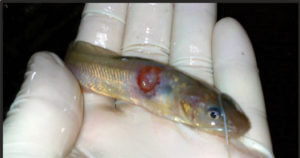
Eugenol has been described as a stimulant based on its effects upon some immunological parameters in fish. Nevertheless, some reports claim it inhibits certain immunological events. A five-day assessment using eugenol at 5 and 10 mg/L in one-hour baths once daily found no changes in blood and natural immune response parameters in silver catfish. Blood values were similar to basal values previously reported for the species.
However, another study employing the same protocol found that eugenol promoted survival of silver catfish experimentally infected with Aeromonas hydrophila. The 66 percent survival of the group treated with 10 mg/L eugenol did not differ statistically from the 75 percent survival of the group treated with an antibiotic, but was significantly higher than the 33 percent survival found for the negative control group.
Furthermore, the same study found that in vitro at 50 mg/L, eugenol significantly reduced the hemolysis caused by A. hydrophila in fish erythrocytes. In addition, another investigation reported the efficacy of 5 and 10 mg eugenol/L against monogenean parasites isolated from silver catfish. The parasite mortality was close to 80 and 90 percent, respectively.
These results added to the recognized anti-inflammatory and antioxidant properties of eugenol to promote its use not only as a sedative or anesthetic for fish, but also a complementary therapy or one for use in combination with other drugs for treating or preventing diseases in fish.
Perspectives
It is necessary to examine the behavioral and physiological responses of each fish species prior to recommending large-scale use of eugenol, and further studies are needed to assess immune parameters. Hence, serious consideration should be given to the use of clove oil and eugenol as replacements for traditional anesthetics or as prophylactic and therapeutic agents for fish.
Based on the results of recent research and the broad range of pharmacological and biological properties of these products, however, they should be considered a priority in aquaculture research. Additional information on such agents would assist the agencies responsible for regulating chemical use in animals for human consumption.
(Editor’s Note: This article was originally published in the May/June 2014 print edition of the Global Aquaculture Advocate.)
Now that you've reached the end of the article ...
… please consider supporting GSA’s mission to advance responsible seafood practices through education, advocacy and third-party assurances. The Advocate aims to document the evolution of responsible seafood practices and share the expansive knowledge of our vast network of contributors.
By becoming a Global Seafood Alliance member, you’re ensuring that all of the pre-competitive work we do through member benefits, resources and events can continue. Individual membership costs just $50 a year.
Not a GSA member? Join us.
Authors
-
Fernando J. Sutili
Laboratório de Fisiologia de Peixes
Departamento de Fisiologia e Farmacologia
Universidade Federal de Santa Maria -
Luciane T. Gressler
Laboratório de Fisiologia de Peixes
Departamento de Fisiologia e Farmacologia
Universidade Federal de Santa Maria -
Bernardo Baldisserotto
Departamento de Fisiologia e Farmacologia
Universidade Federal de Santa Maria
97105-900 - Santa Maria - RS – Brazil
bbaldisserotto@hotmail.com
Tagged With
Related Posts
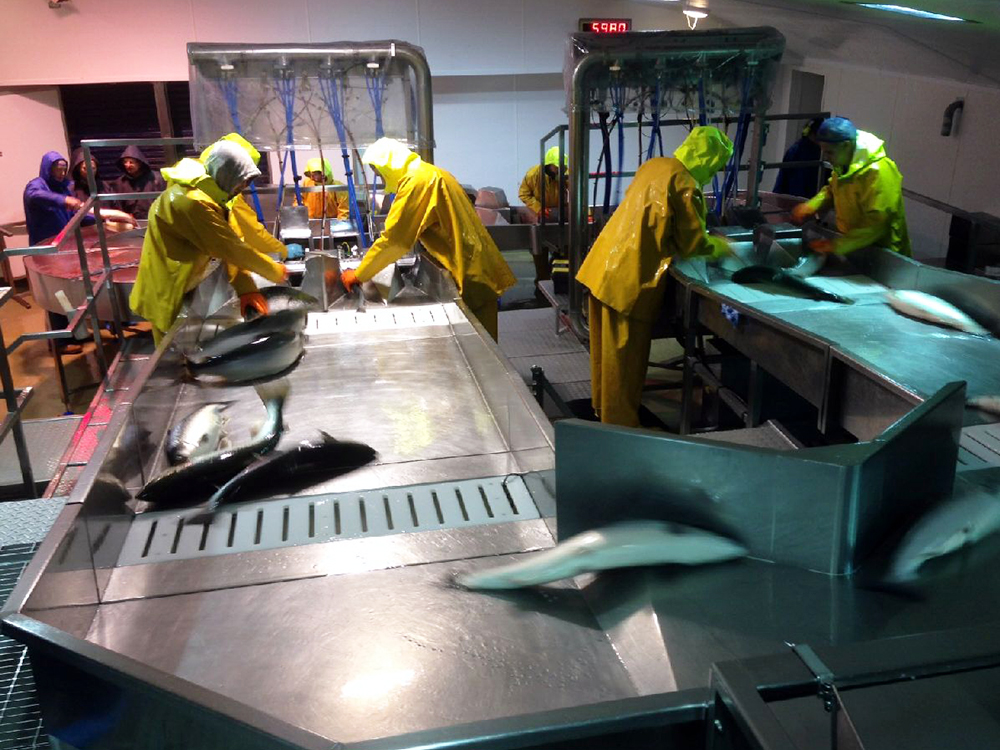
Health & Welfare
Fish producers benefit from humane slaughter techniques
EU legislation requires farmed fish be spared unnecessary pain, distress or suffering at slaughter, and efficient manual and automated systems have been developed to help achieve this goal. What’s more, longer shelf life and improved flesh quality have been reported.
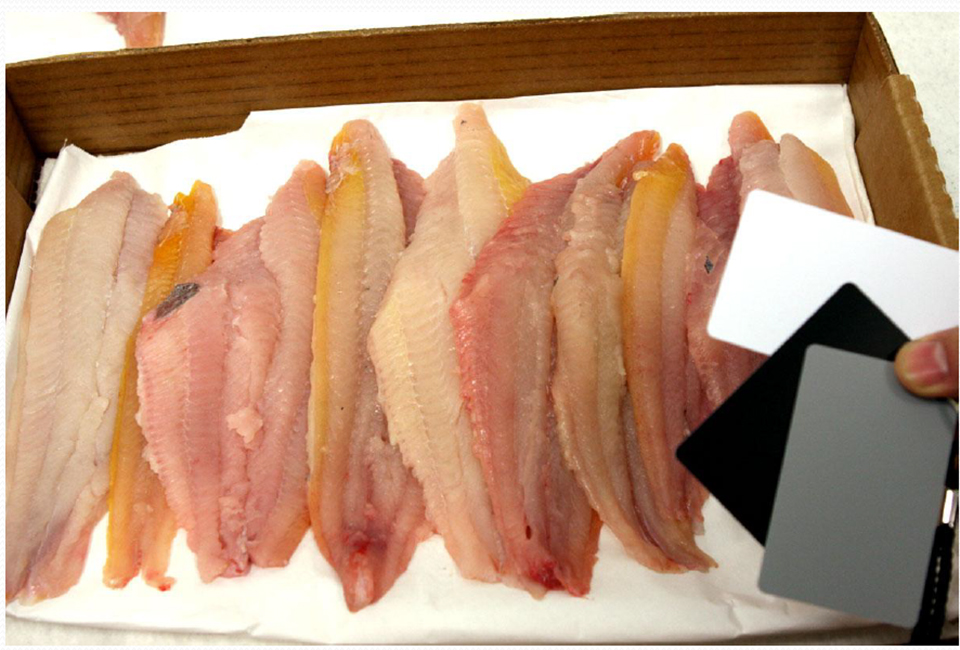
Innovation & Investment
Assessing coloration in channel catfish fillets
Because consumers look at color to gauge quality of catfish fillets, the authors developed a digital photography measurement method to assess yellowness.
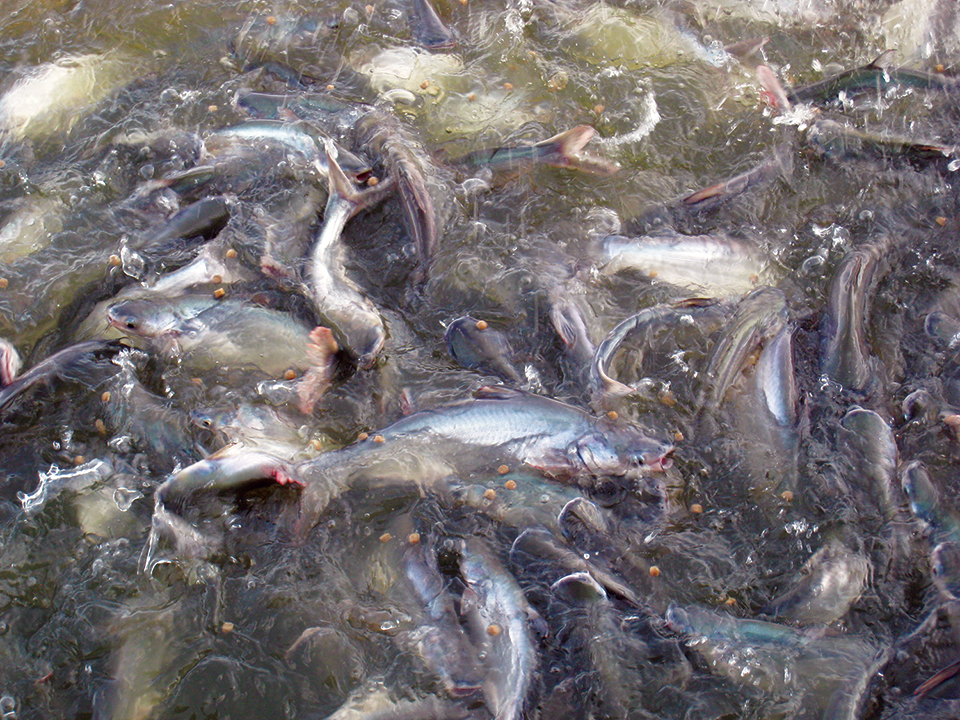
Health & Welfare
Amino acid supplementation reduces protein levels in pangasius diets
Trials show that supplementation with amino acids could reduce protein levels from a typical 28 percent to 23 percent in pangasius diets.

Innovation & Investment
Aquaculture planning, development in Brazilian federal waters
The aquaculture industry in Brazil is moving toward further expansion with the support of the federal government. A key strategy of the More Fishing and Aquaculture plan is the development of aquaculture in federal waters. The plan promotes sustainable development of fisheries and aquaculture by linking those involved and consolidating state policies addressing social inclusion, security and food sovereignty. Tilapia is the main farmed fish, although tambaqui and others have potential for large-scale production due to their wide acceptance by consumers.



